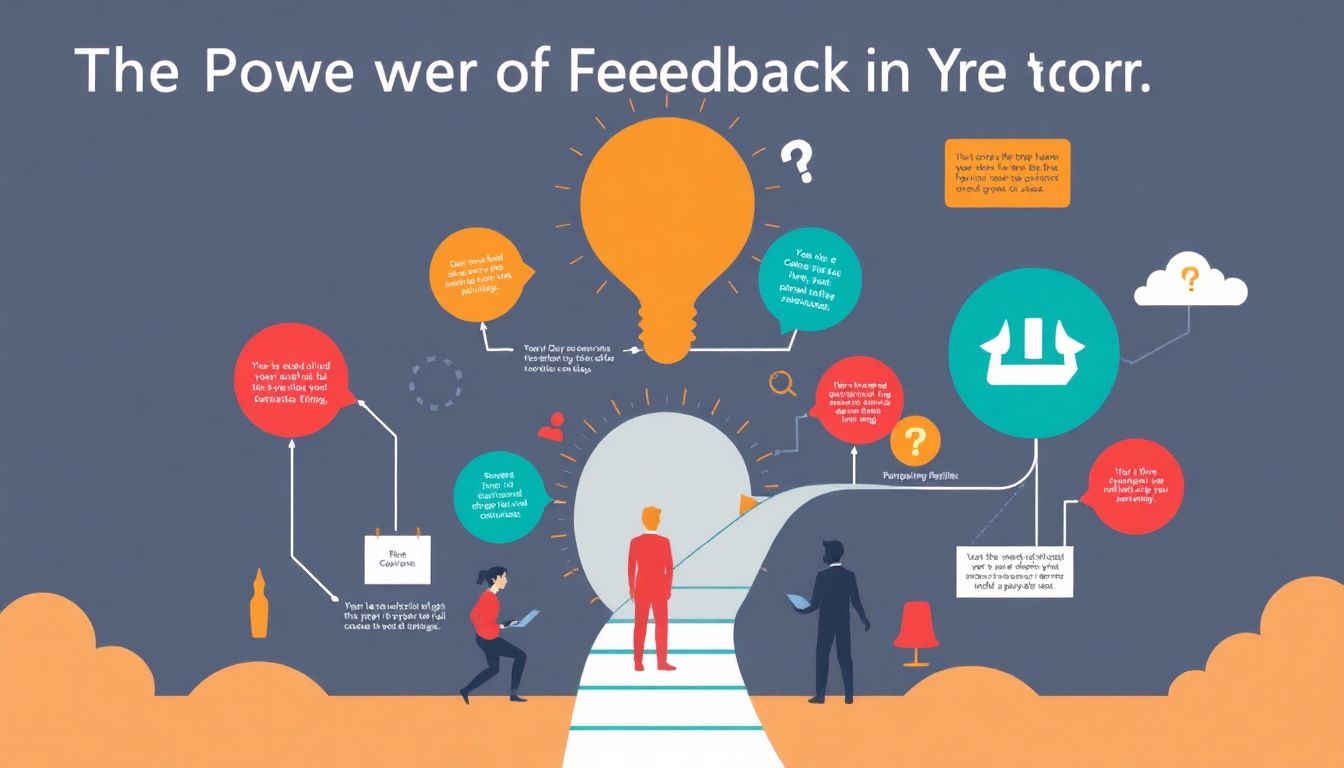Feedback is one of the most underrated tools for personal and professional growth. While self-reflection is essential, we all have blind spots—areas of behavior or thinking we can’t fully see on our own. That’s where feedback becomes a mirror, offering insights into how others experience us and helping us expand our self-awareness.
For anyone striving to build a career with purpose and impact, learning how to seek, receive, and apply feedback is a game changer. It allows you to grow faster, build trust, and make better decisions about how you show up at work and in life.
Why Feedback Matters for Self-Awareness
Even with the best intentions, self-awareness has limits when it’s based only on our internal perception. Feedback provides an external perspective that can confirm, challenge, or expand what we believe about ourselves. It’s not about pleasing others—it’s about discovering the truth of how your actions and communication affect those around you.
Receiving consistent, honest feedback helps you:
- Discover behavioral patterns you may not notice
- Understand your impact on others
- Learn what’s working and what’s not in your approach
- Grow in areas that truly matter for your career
Seeking Feedback Proactively
Waiting for performance reviews isn’t enough. Self-aware professionals actively seek feedback in real time, especially after key interactions or projects. Make it a habit to ask short, clear questions like:
- “What’s one thing I did well in that meeting?”
- “What’s one area I could improve?”
- “How was my communication during the project?”
When you ask these questions with openness and genuine curiosity, you signal emotional maturity and a growth mindset.
Choosing the Right People
Not all feedback is equally useful. To deepen your self-awareness, choose people who:
- Know you well enough to give meaningful observations
- Are honest, not just polite
- Want to see you grow
This might include a manager, mentor, colleague, or even a close friend. Be clear that you’re not looking for flattery—you’re looking for insight. The more specific you are in your request, the more helpful their response will be.
Receiving Feedback Without Defensiveness
Hearing feedback—especially when it’s constructive—can trigger discomfort, embarrassment, or even frustration. That’s normal. The key is learning how to manage your emotional response so you can receive the message with clarity.
When someone offers feedback:
- Breathe before reacting
- Say thank you, even if it’s hard to hear
- Ask clarifying questions if needed
- Avoid arguing or explaining—just listen
Later, reflect privately on the feedback. Ask yourself what parts feel true, what patterns are emerging, and how you might apply the insights going forward.
Applying Feedback to Grow
Feedback only creates value when you use it. Choose one small action to take based on what you’ve learned. For example:
- If someone noted that you dominate conversations, practice active listening in your next meeting.
- If a colleague suggested you could be more concise, write shorter emails or prepare bullet points before presentations.
- If your manager sees potential in your leadership, volunteer to lead a small initiative.
Small changes lead to big growth. The more you act on feedback, the more self-aware and skilled you become.
Giving Feedback Builds Your Self-Awareness Too
Giving feedback to others is also a self-awareness practice. It requires you to observe carefully, communicate clearly, and be emotionally intelligent. It also forces you to examine your own standards and values.
When you offer feedback:
- Focus on behavior, not personality
- Be specific and kind
- Offer it with the intention to support, not criticize
As you grow more comfortable giving and receiving feedback, you become someone others trust—and someone who continually evolves.
Feedback as a Lifelong Practice
Self-awareness isn’t a destination; it’s a journey. And feedback is one of your most reliable travel companions. The more you embrace it, the more you grow—professionally and personally.
You don’t need to take every piece of feedback as a command. But every comment, observation, or question from someone who cares can be a window into your development. With humility and intention, you can turn those insights into actions—and actions into transformation.
Being open to feedback isn’t a sign of weakness. It’s a sign of strength, confidence, and commitment to becoming the best version of yourself.
